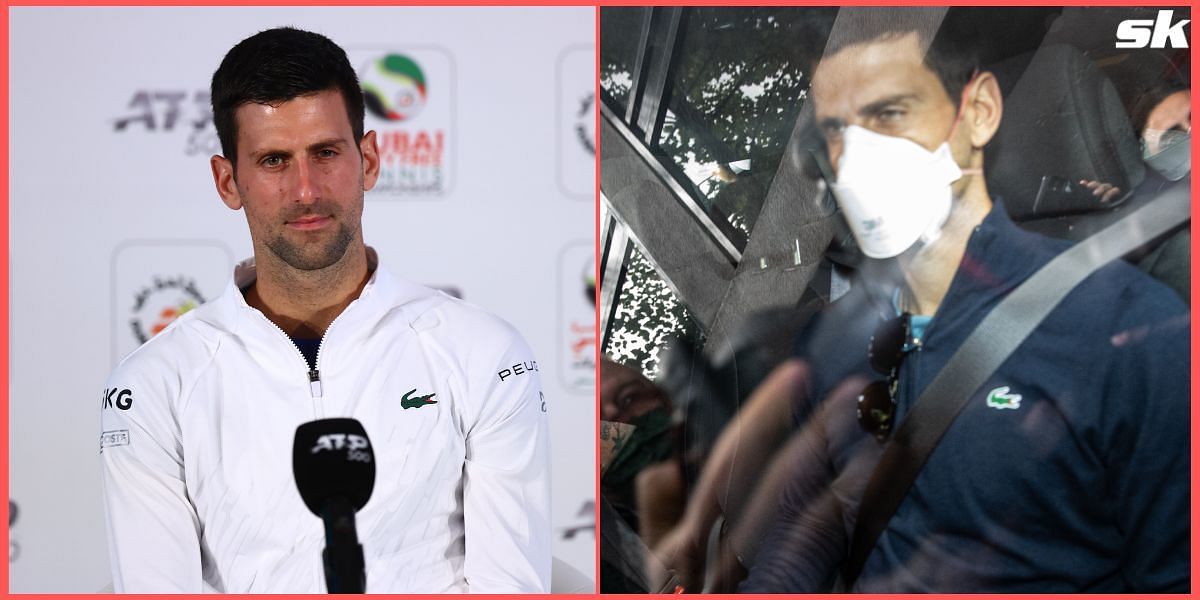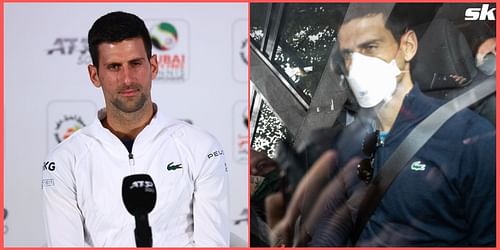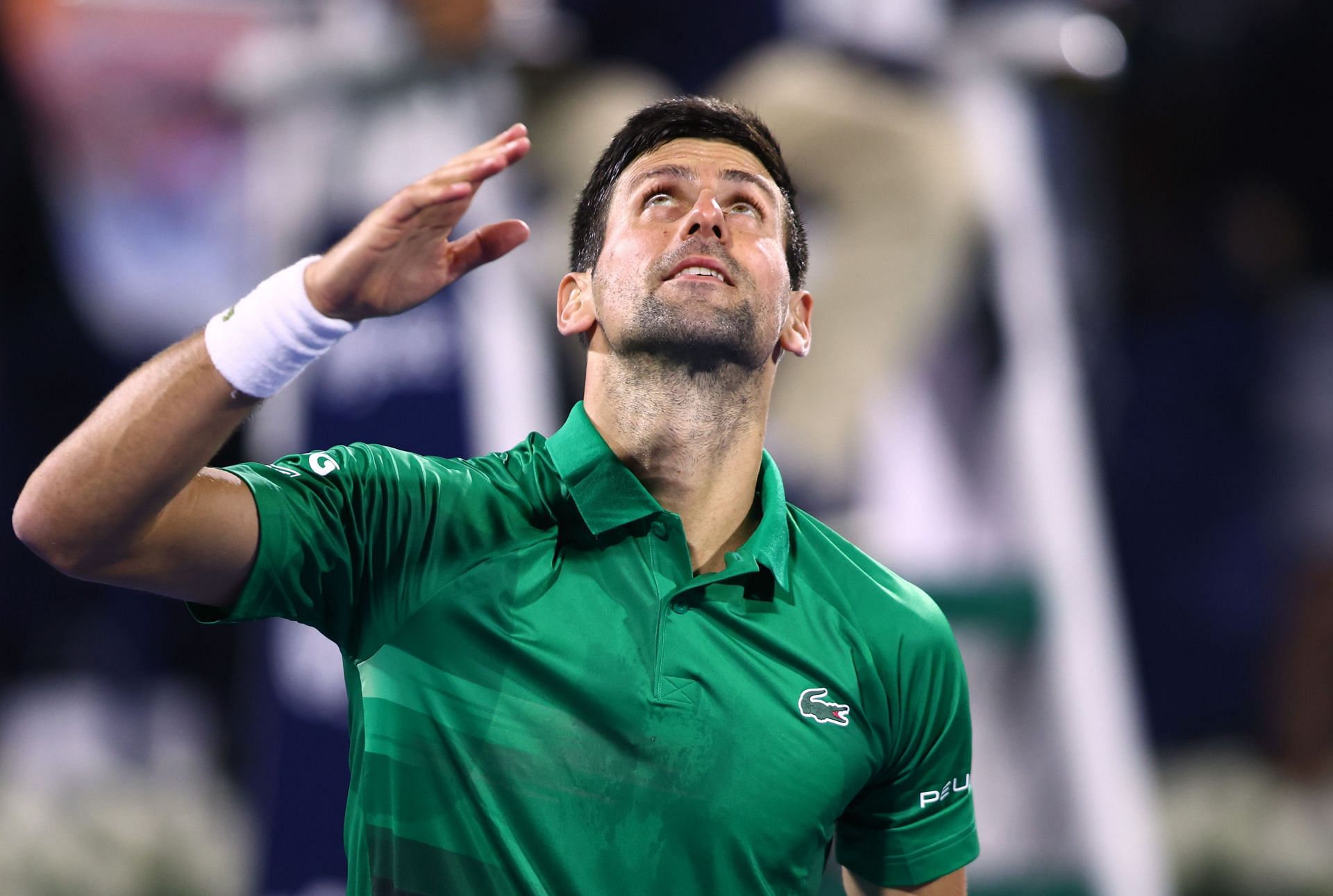
"A very ugly image of me was created; they humiliated me on a world level" - Novak Djokovic opens up about visa fiasco in Australia

In a recent interview, Novak Djokovic had some harsh words about the way he was treated in Australia ahead of the season's first Grand Slam last month. The World No. 1 minced no words, saying that he felt "humiliated" by the ordeal and that the concerned authorities publicly portrayed a "very ugly image" of him.
The 20-time Grand Slam champion was deported from Australia days prior to the start of the Melbourne Major for non compliance with vaccination requirements. The Serb's visa into the country was sanctioned twice, but was eventually canceled by the Immigration Minister in the interest of the public
The Federal court of Australia upheld the decision after a protracted legal battle, ensuring that the three-time defending champion and top seed would not participate in the tournament. Speaking in an exclusive with Sport Klub, the Serb revealed that it was because of his mistreatment that he wanted the opportunity to explain his side of the story.
"A very ugly image of me was created [in Australia]. They humiliated me, if I may say so, on a world level. That is why it is important that I always have the opportunity to say something," Djokovic said. "If someone wants to ask me something, I will answer."
The 34-year-old pushed back against criticism that he had politicized the entire situation, noting that he had, in fact, done the opposite. He reminded everyone about how he had remained silent until the tournament ended, a clear sign that he respected his colleagues enough to not politicize anything.
An emotional Djokovic further claimed that the only reason he wanted to play at Melbourne Park was because it was where he had been most successful. For reference, the Serb has won the tournament a record nine times.
"For me, sport has always been above politics. Some think that I politicized this whole situation, that I deliberately wanted to enter the country and attract attention. They think that I entered politics more than sports. But the opposite is true," Djokovic said. "I left because I am an athlete. I left even when [the Australian Open] is where I recorded my best results. I wanted to respect my colleagues, and that's why I didn't [speak] until it was over."
Novak Djokovic declared that it was an ordeal he could never forget but understood that it was one he had to accept anyway and move on from. What he refused to do, however, was give the idea that he was running away from questions about his decisions.
"I can't erase what happened from my memory. Everything is so fresh. It really was a precedent in every sense. I can accept it as it is, and move on," said. "What you will certainly not hear or see from me is running away from responsibility and the desire to answer someone's question. I don't hide anything. I don't run away."
The interview with Sport Klub is the second exclusive the World No. 1 has given since the visa fiasco. The first one came with the BBC last week. The 20-time Grand Slam champion disclosed that it was a deliberate decision on his part.
Djokovic remarked that the BBC were one of his most vocal critics during his time in Australia, and that was why he gave them a free reign with all the questions they wanted to ask. It was his way of proving to his detractors that he had nothing to hide.
"If I had called someone with whom I have a good relationship, they would have said, "Here he is, he set up an interview so that they don't ask him anything, he runs away from embarrassing situations, he hides something." 'That is the biggest reason why I called the BBC," he said. "Those who criticized me the most could come and ask me anything they wanted."
"I did everything that was asked of me. I was in a position like any other tennis player" - Novak Djokovic

Novak Djokovic made it very clear in the interview that he did not receive any special concessions because of his stature. The World No. 1 claimed that he made use of the same provisions as everyone else to get the medical exemption, the basis on which he was allowed to participate in the Australian Open in the first place.
"I did everything that was asked of me. I was in a position like any other tennis player. I see that there is a belief that I was privileged and that I received that status because of who I am," Djokovic said. "I will say something that the BBC cut, and I will repeat this like a parrot: Everyone had the same exception."
He referred to Renata Voracova and Filip Serdarusic, who had initially been allowed to enter Australia but were later deported just like the Serb. The 20-time Grand Slam champion pointed out that they had no problems until his arrival, implying that he had been singled out as the scapegoat.
"Ten days before [I came to Australia], a tennis player from the Czech Republic and a coach from Croatia came in with an identical exemption," Djokovic said. "She played a tournament and he coached his player. There was no problem. Suddenly the problem arose because I came. Why? You tell me."

